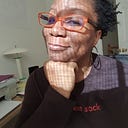Black Lives or Badge Lives? The Social Movement Hashtags that Matter to the U.S. Patent and Trademark Office
Recently, a Canadian company, Righteous Gelato, was accused of commodifying the Black Lives Matter movement. According to CBC News, their product line featured a chocolate mint chip flavored gelato called, “Black Lives Matter.” The container displayed artwork of three people of color wearing “I can’t breathe” masks and holding Black Lives Matter signs. While the company stated that a portion of the proceeds would have gone to organizations that support diversity and inclusion, public criticism and outrage forced the company to apologize, pull the product from its website, and halt campaign hours after its launch.
Attempts to profit off the Black Lives Matter movement are not new. Since the death of Michael Brown in Ferguson in 2014, at least 13 trademark applications for #BlackLivesMatter have been denied by the U.S. Patent and Trademark Office (USPTO).
At the same time, trademarks capitalizing on the “lives matter” phrase have flourished. From #ChristianLivesMatter to Badge Lives Matter, the USPTO has awarded trademark protection to more than 15 variations of “lives matter.”
At a time of heightened reflection about institutional racism, what accounts for such blatant misappropriation of citizen-created hashtags? Our upcoming study in Journalism and Mass Communication Quarterly of trademark applicants based on #BlackLivesMatter suggests a pattern of systemic racism that needs attention.
The USPTO is the governing body that awards federal trademark protection to content creators. They have ruled that #BlackLivesMatter is a First Amendment protected political phrase and therefore cannot be trademarked–making it fair game for any and all misappropriation. In legal terms, the USPTO has ruled the hashtag is a descriptive mark that has not gained — earned — the “distinctiveness” necessary for a federal trademark. As a result, the agency has repeatedly denied trademark protection to those applying for #BlackLivesMatter.
While this ruling is not legally surprising to those who study U.S. trademark law, what is surprising are the number of applicants who have capitalized on the success of #BlackLivesMatter with their own versions and received USPTO approval. Everyone from Christians to police to cats are protected by a federal law that mostly Black applicants have been denied. We traced the applications of those who attempted to capitalize off #BlackLivesMatter and variations of it. More than a dozen appropriators have been successful receiving USPTO protection, while more than a dozen #BlackLivesMatter applicants have been rejected.
Online social movements and citizen-created hashtags represent a new kind of trademark phenomenon altogether, one that should be acknowledged by trademark law. Not only should the USPTO re-evaluate these instances of cultural misappropriation, but it must also consider new policies around the trademarking of social movement hashtags. It must reconsider a system that denies Black applicants a clear path to protect their intellectual property. As it is, those whose causes do not reflect the profound and tragic injustices that #BlackLivesMatter does sail through the process.
One possibility may lie in adaptations to trademark’s “collective membership mark” (15 U.S.C. §1127) and envisioning new uses for the mark. A collective mark is owned by its members and is “adopted for the purpose of indicating membership in an organized collective group” and its “sole function . . . is to indicate that the person displaying the mark is a member of the organized collective group.” We can envision circumstances in which citizen-created hashtags could be eligible for a collective mark, or something like it, particularly when there is evidence of a secondary meaning, a legal requirement for descriptive trademarks like #BlackLivesMatter, over time.
Additionally, a temporary mark with limited protections might also be considered, similar to what the USPTO’s supplemental register provides. Applicants with evidence of growth in recognition for the mark (what the law calls “secondary meaning”) could obtain limited protection for a defined period, perhaps two years, to allow users to prove that consumers can identify the mark’s origins. One recommendation is for applicants to conduct and submit to the USPTO a consumer perception survey of 300 or more participants every two years demonstrating the state of the hashtag and how it is acquiring secondary meaning and qualifies for full protection.
There is cruel irony in a system that exploited the physical labor of Black bodies for hundreds of years, only now to exploit the intellectual fruits of the Black mind. As we commit ourselves to changing systems of oppression that hurt Black people physically, we must also demand better from our intellectual property systems that allow the misappropriation of Black people’s intellectual creations.
*This piece was written in partnership with my co-author Victoria “Tori” Ekstrand, Associate Professor, UNC Hussman School of Journalism and Media.
